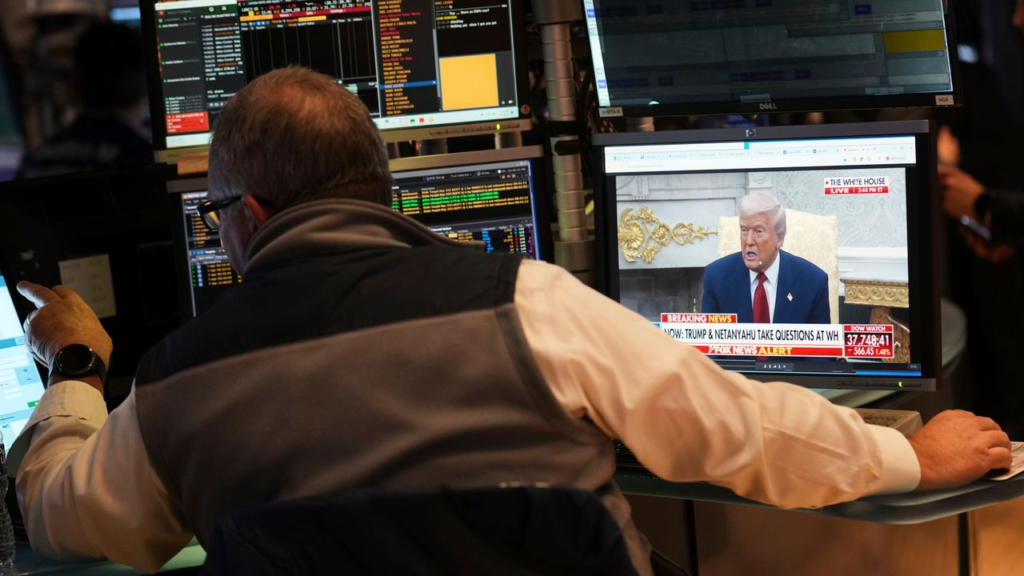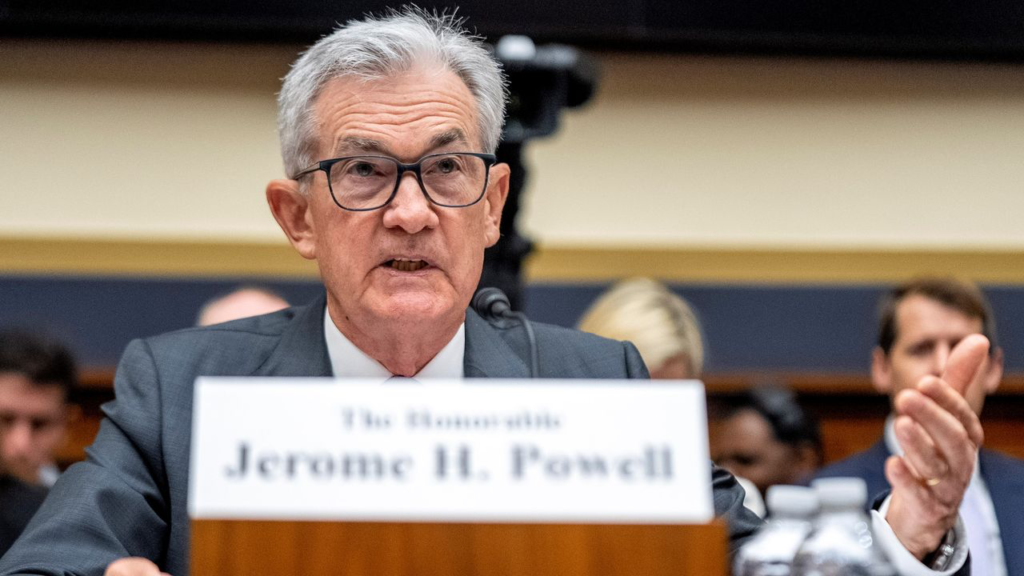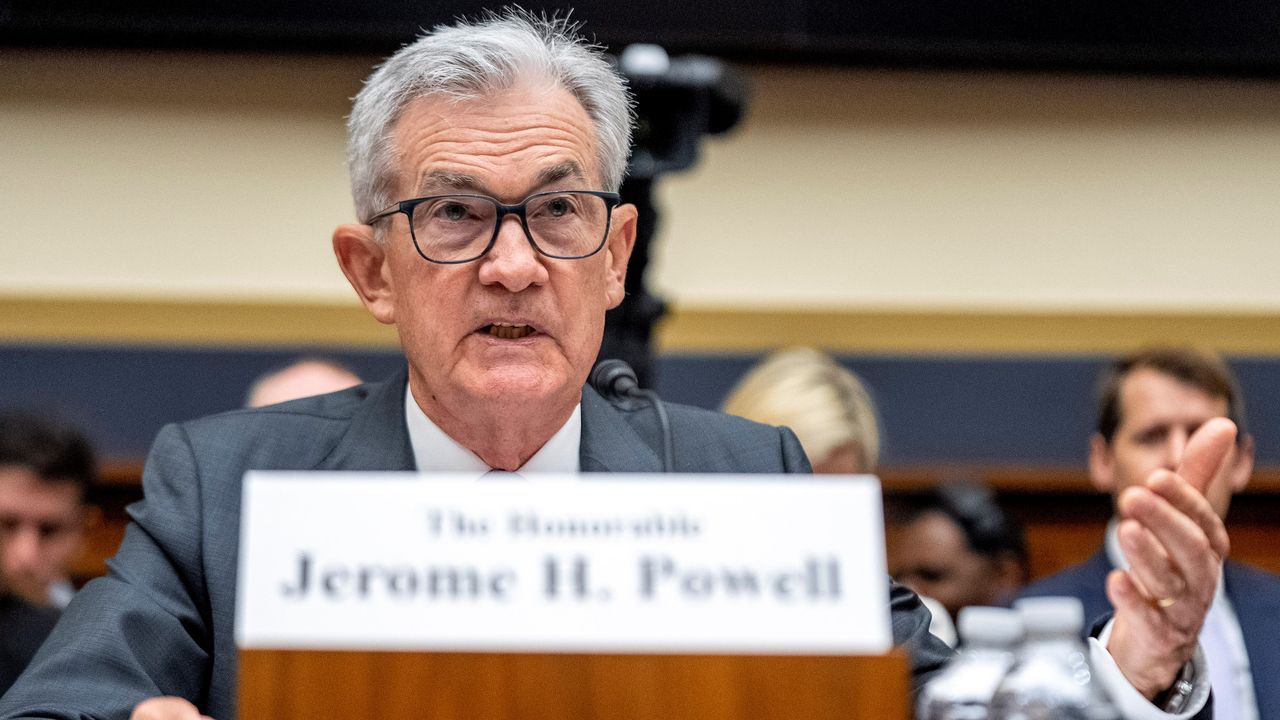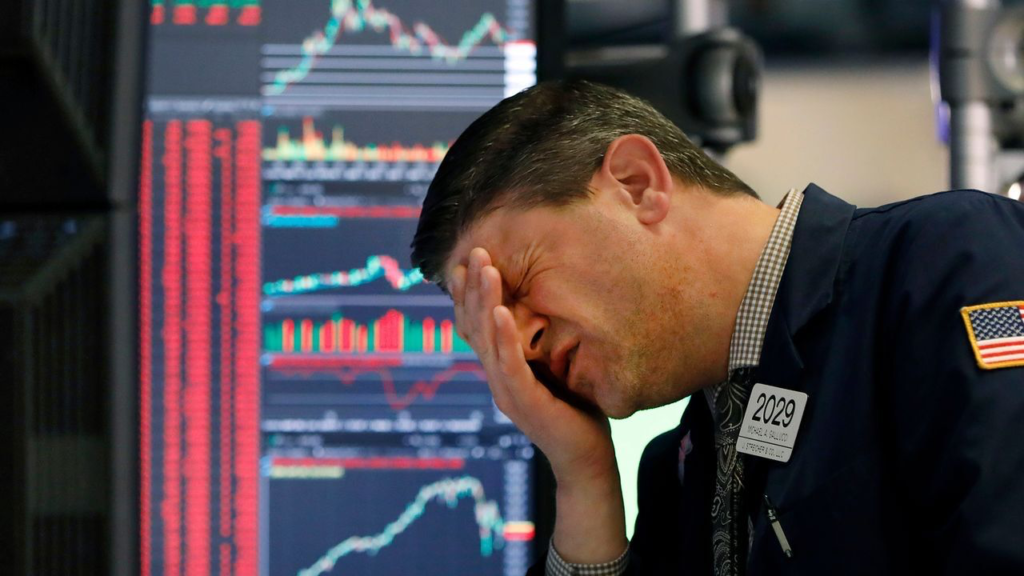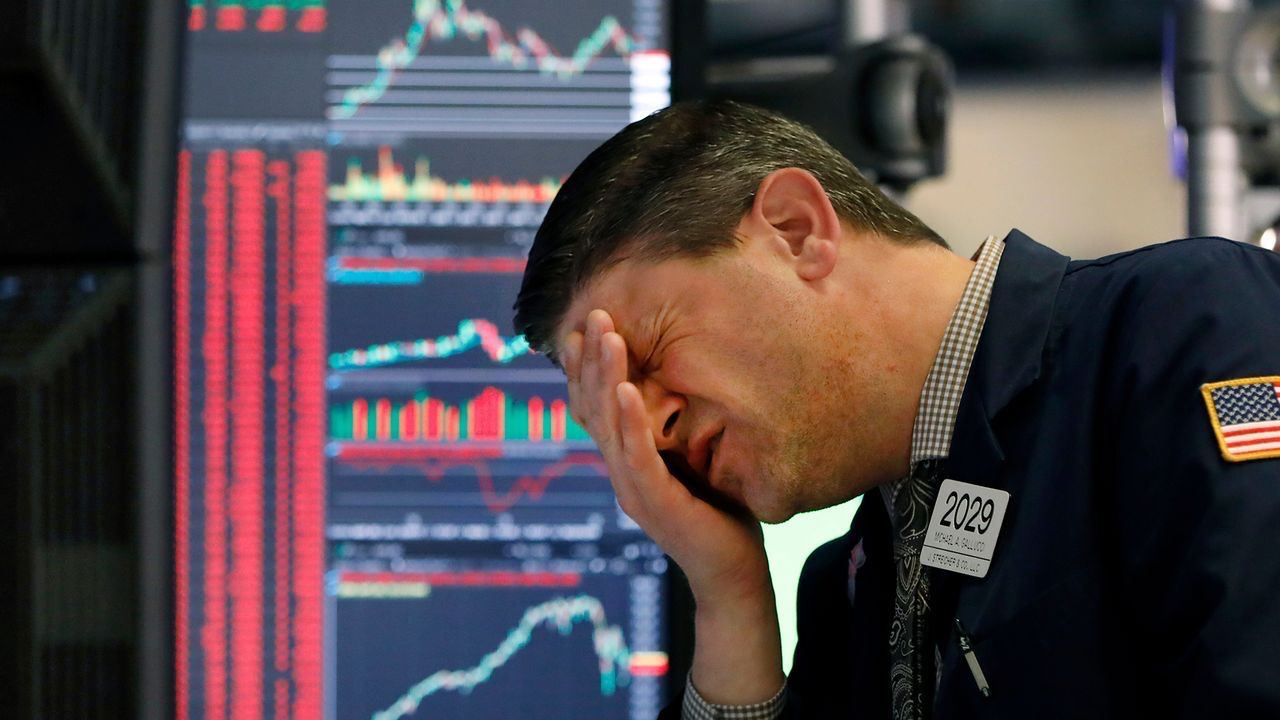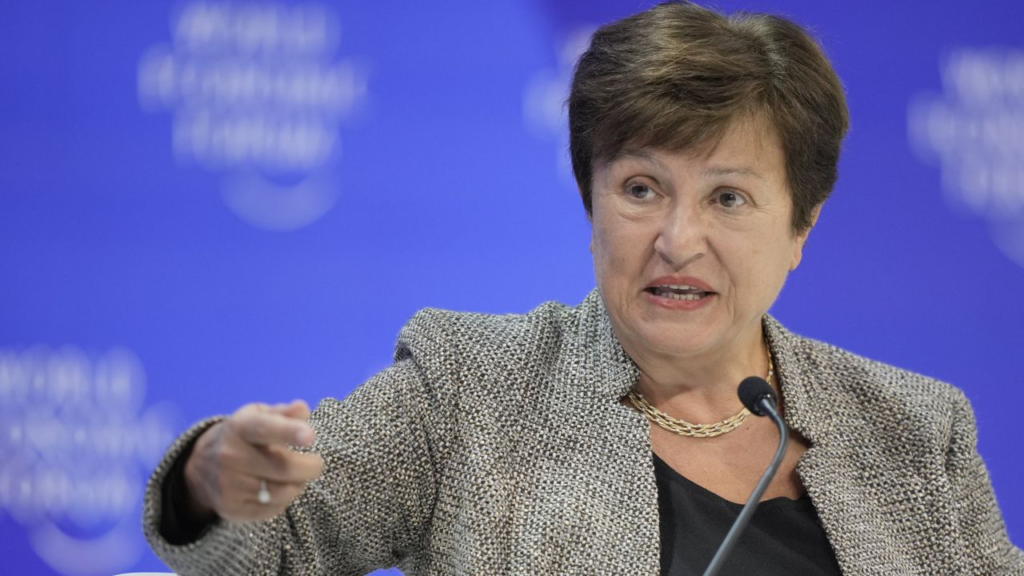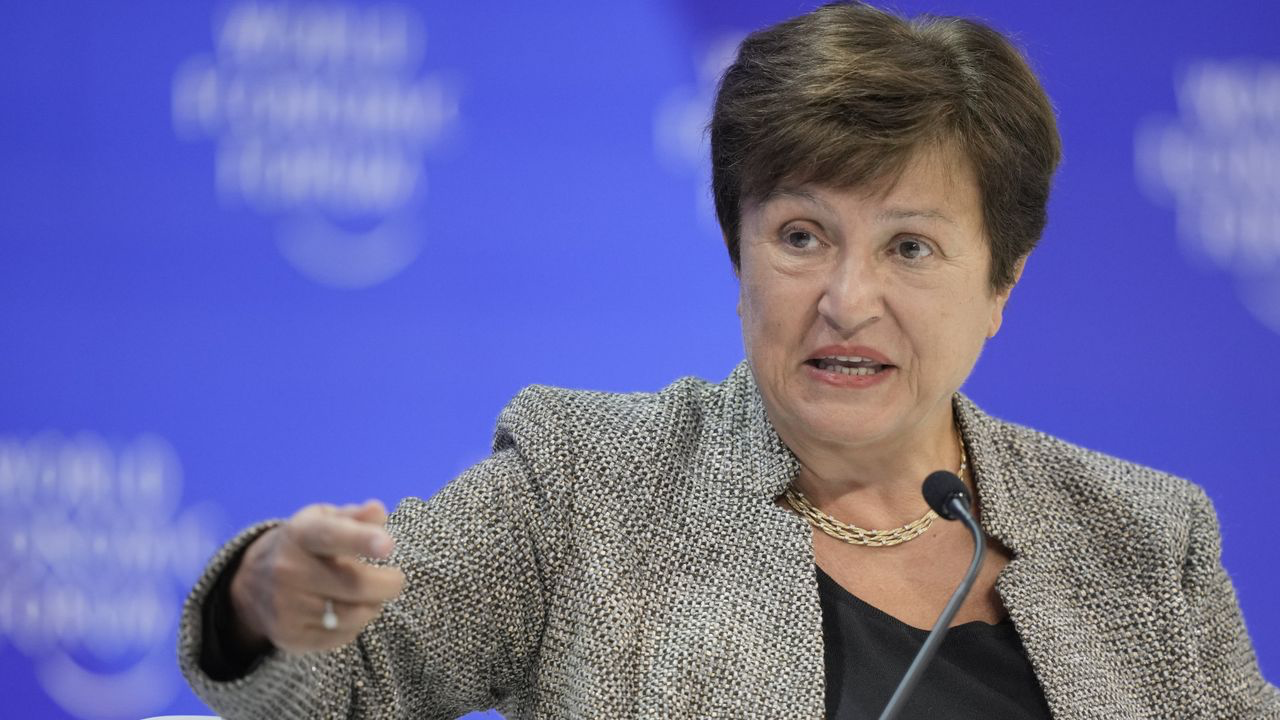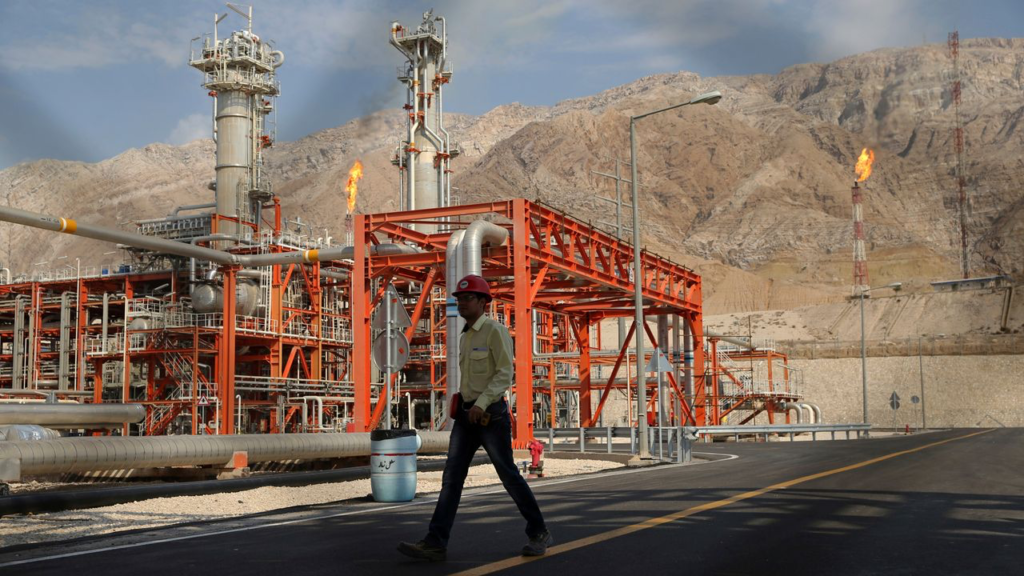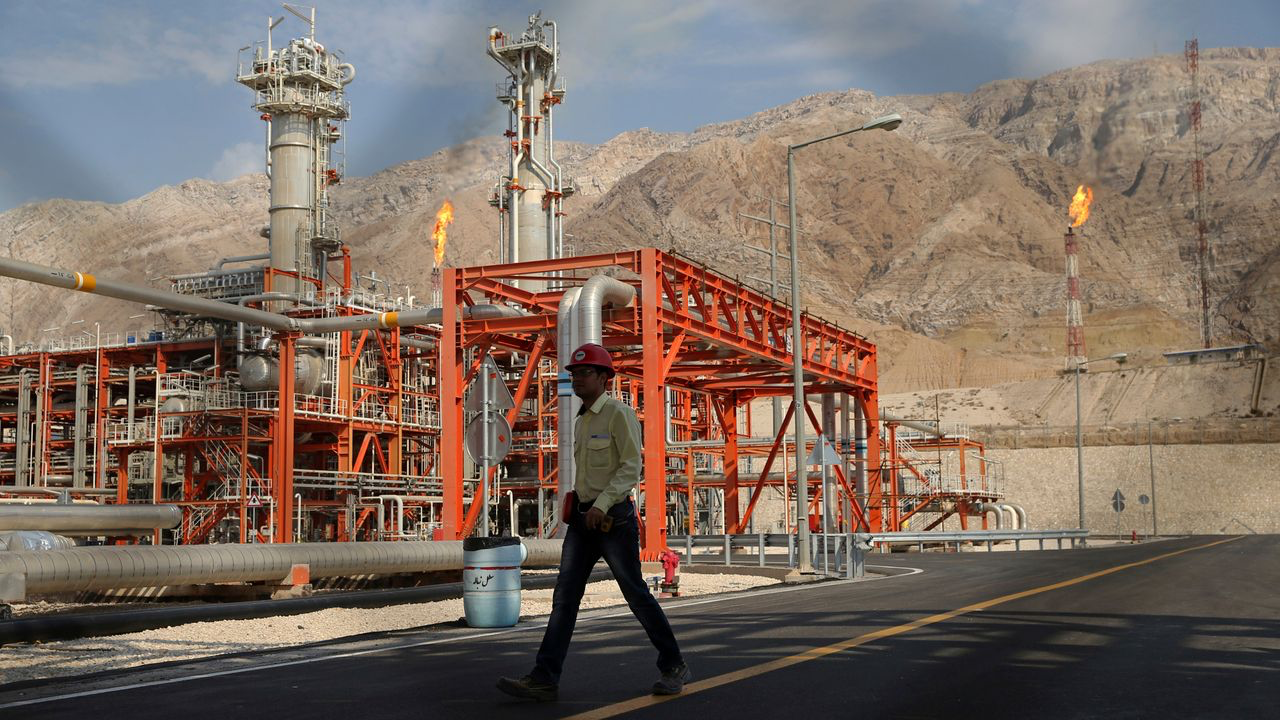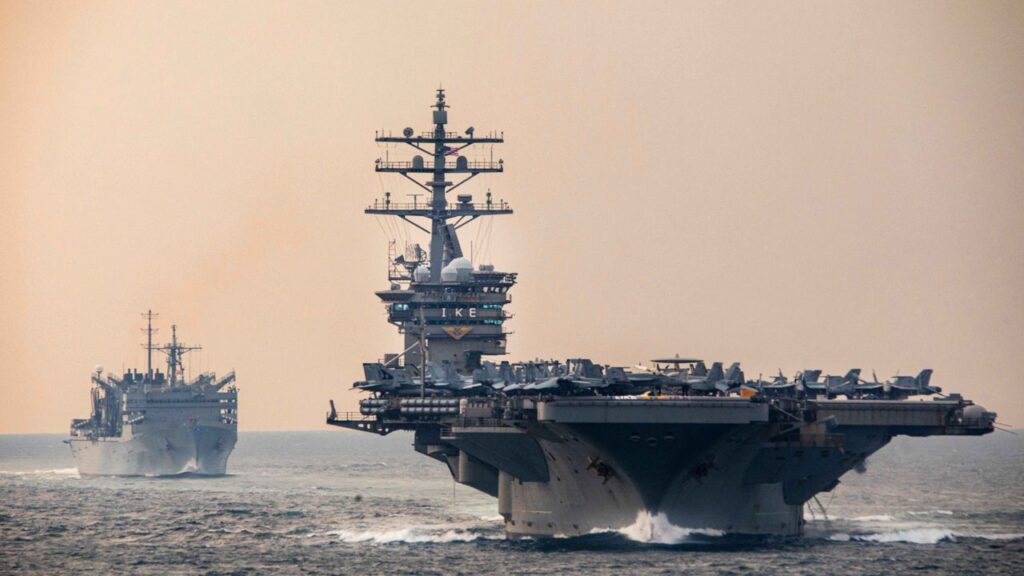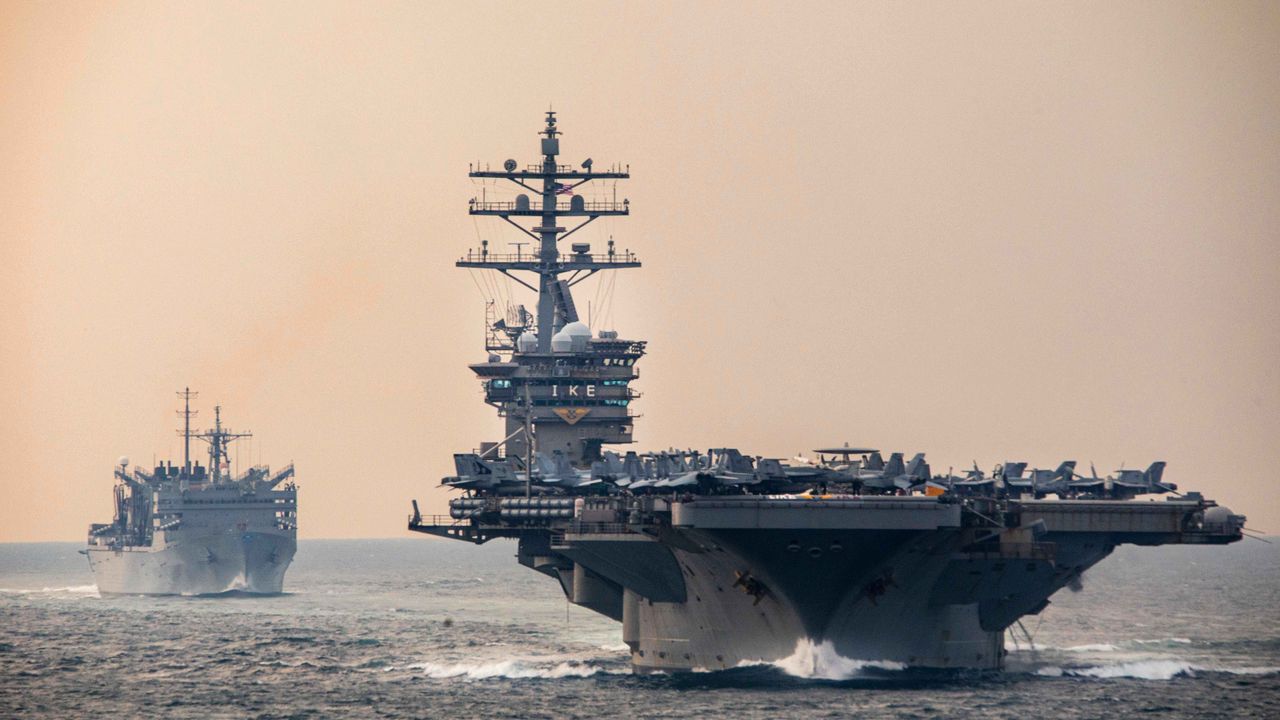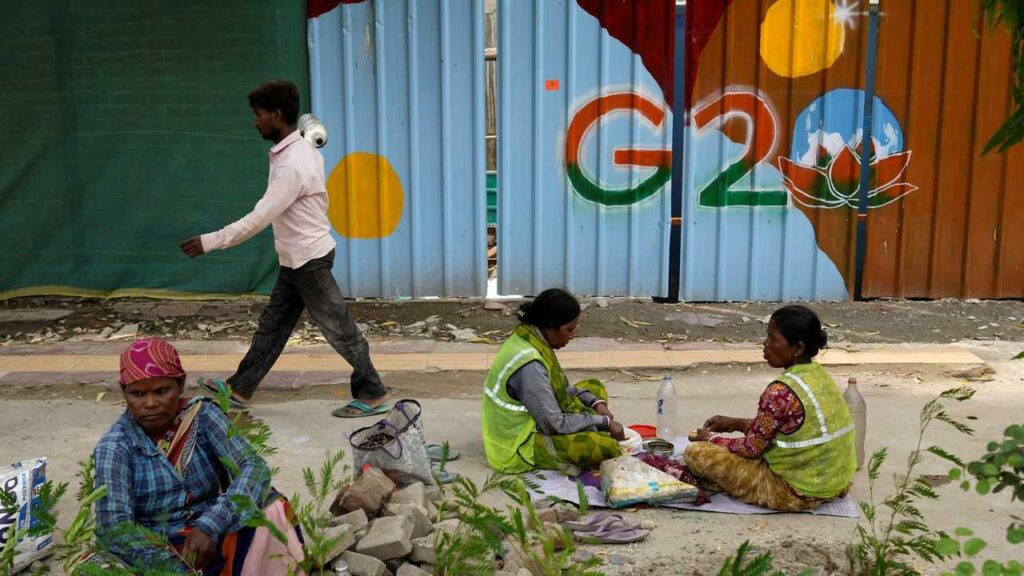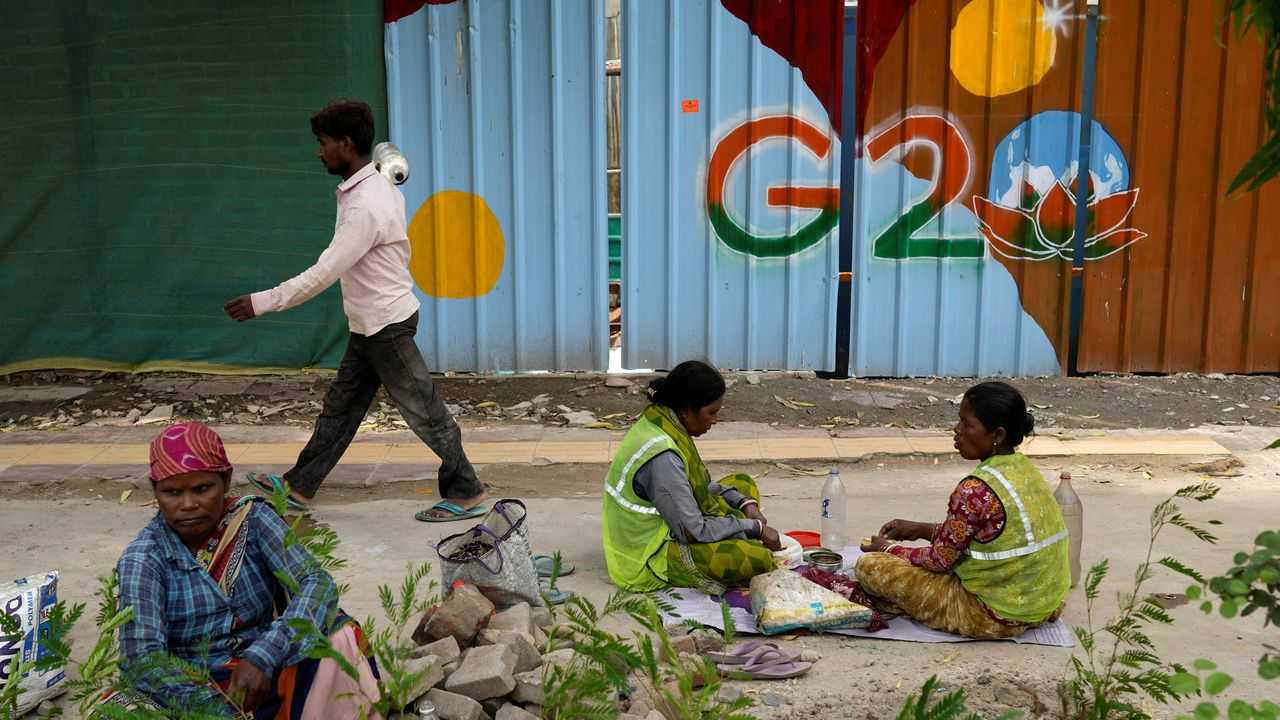Dollar’s role as global reserve currency under fire
By Nick Beams.
At first, it was just a quiet murmur in relatively isolated sections of the financial press. Today, however, the voices are growing louder: the US dollar could lose its role as the world’s global currency amid the breakdown of all the arrangements and mechanisms of the post-war period under the impact of the US economic war against the world initiated by President Trump.
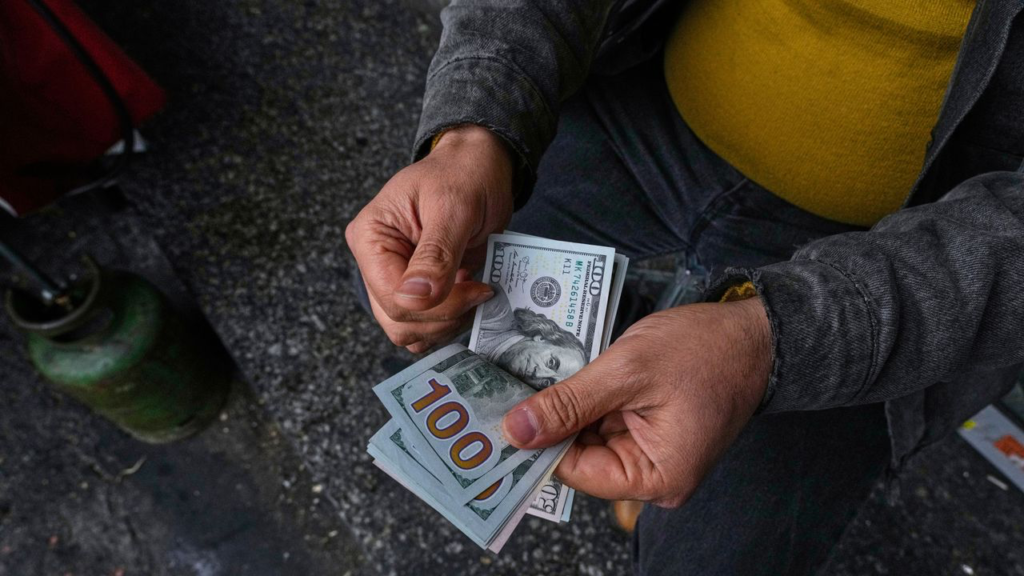
This week, the Financial Times (FT) ran a major article under the headline “Is the world losing faith in the almighty US dollar?” The answer was that it is.
The concern has been sparked by an unusual development in financial markets. Under “normal” conditions, financial disturbances bring about a rise in the dollar’s value as investors seek a safe haven and move to acquire US Treasury bonds.
But since so-called “liberation day,” when Trump unveiled his “reciprocal tariffs,” there has been a move out of US government debt, and the value of the dollar has fallen. The price of gold, a real store of value, as opposed to debt and credit, continues to reach record highs.
There was a slowing of this movement when Trump announced a 90-day pause on the reciprocal tariffs, which range between 30 and 50 percent for a wide range of countries, to allow for negotiations. But the question remains: What happens after the pause ends?
Whatever the immediate answer, one thing is certain: There will be no return to the status quo ante, with Trump warning that nobody “gets off the hook.” This week, talks took place between the administration and Japan in Washington. The Japanese trade representative returned home empty-handed.
The implications of the new situation were underscored in a comment by a leading FT columnist, Rana Foroohar, entitled “America the Unstable.”
Foroohar began by saying that her “takeaway” from the tariff chaos and fallout was that America, under Trump, has become an “emerging market.”
In previous periods of political and economic stress, US equities and the currency rose because of the “haven status” of the dollar.
“It didn’t seem to matter that all the things that had bolstered American companies from low rates to financial engineering to globalization itself were tapped out. US asset markets seemed impervious to the notion of the dollar-doomsday scenario that would send both the currency and asset prices tumbling. Trump has finally ended America’s exorbitant privilege.”
She concluded by saying that previously she would have ruled out the possibility that America could become the epicenter of an emerging market-style debt crisis, but “not anymore.”
Trump’s measures—the tariff hikes that will slow the economy and proposed tax cuts for corporations—will add trillions of dollars to what is increasingly being characterized as an “unsustainable” debt mountain, currently at $36 trillion and rising.
In a report issued earlier this month, George Saravelos, global head of foreign exchange research at Deutsche Bank, summed up the growing outlook in leading global financial circles.
“Despite President Trump’s reversal on tariffs, the damage to the USD has been done,” he wrote in a report. “The market is reassessing the structural attractiveness of the dollar as the world’s reserve currency and is undergoing a process of de-dollarization.”
However, the crisis is not merely a product of Trump’s actions. It has been long in the making—the outcome of a protracted decline in the economic position of the US.
Trump, as is now openly acknowledged, has taken an axe to the economic, trade, and financial mechanisms set in place after World War II, considering that they have contributed decisively to the weakening of the US.
Of course, Trump, for whom, like Henry Ford, “history is bunk,” never explains why they were put in place and why the US played the leading role in their establishment. It was very much, to invoke the phrase he so often uses in his rampages, due to concerns with “national security.”
The purpose of the post-war measures was to prevent the return to the conditions that had prevailed in the period between the wars, grounded not least on the understanding that this would lead to revolutionary struggles by the working class in the major capitalist countries, including in the US, which had seen enormous eruptions of class battles in the latter years of the 1930s.
The post-war economic order rested on three pillars—the establishment of the US dollar, backed by gold as the international currency, the reduction of tariffs and promotion of free trade to prevent the emergence of the trade and currency wars that had proved so disastrous in the 1930s, and the reconstruction of war-torn Europe under the Marshall Plan. All three were based on the strength and industrial power of the US economy.
Contrary to the claims of various bourgeois economists and not a few self-styled Marxists that the post-war economic capitalism boom which followed had refuted the Marxist analysis of the historically inevitable economic breakdown of the capitalist system, the post-war framework did not overcome its fundamental contradictions—above all, that between the world market and its division into rival nation-states and great powers.
And within the space of 25 years—a short period of time from the standpoint of history—these contradictions emerged. On August 15, 1971, President Nixon, in the face of a growing balance on trade and balance of payments deficit in the US, removed the gold backing from the US dollar—unilaterally abrogating the Bretton Woods Agreement of 1944.
It was a sign that the power of American capitalism, the basis of the post-war order, was starting to markedly weaken.
The scrapping of the Bretton Woods system ushered in a new global financial system. In the 1950s and 1960s, currencies had exchanged at fixed rates. Maintenance of those fixed rates and the prevention of currency wars required that finance and investment flows were subject to tight regulation.
But with the ending of the dollar-gold connection, currencies started to float freely, which meant that capital and financial controls had to be increasingly scrapped. A new international economic order developed based on credit creation and the free flow of money around the world.
The US dollar continued to function as the basis of the international financial system, but it underwent a major transformation. It was now a fiat currency, no longer backed by gold, that is, real value, but solely by the American state. A new global monetary order emerged.
As the FT article noted: “Despite Nixon’s severing the dollar’s link to gold in 1971, the greenback has remained at the center of the monetary universe. In fact, thanks to the dollar’s importance in the expanding and increasingly interconnected global financial system, its importance has only grown. Far from eroding the dollar’s importance, the Nixon shock entrenched it in many ways.”
The freeing of the dollar from the restrictions due to its being tied to gold and the concomitant government regulations aimed at maintaining a fixed exchange system unleashed finance from the constraints imposed on it under the previous regime, opening up vast new avenues for profit accumulation.
Increasingly, above all in the US economy, this gave rise to what has been called financialization, the accumulation of profit via speculative and parasitic methods.
The more these methods developed, the more regulations on finance capital introduced in response to the crisis of the 1930s were scrapped, culminating in the repeal of the last remaining piece of Depression-era legislation, the Glass-Steagall Act, by the Clinton administration in 1999.
In 1991, the liquidation of the Soviet Union by the Stalinist bureaucracy, coupled with the restoration of capitalism in China and the junking of national development policies by the bourgeois national regimes in the former colonies, opened up new profit opportunities through the globalization of production.
Eager to grasp them, the US called for the entry of China into the new world order. The Clinton administration pushed for its admission to the World Trade Organization, which was subsequently ratified by the US under the presidency of George W. Bush.
The US saw the cheaper labor of China as a profit gold mine and that within the new order, China would remain subordinate to it. But the capitalist economy has its own relentless logic, which operates behind the back of imperialist leaders, no matter how powerful.
The Chinese capitalist oligarchy, now confronted with the transformation of the country from a nation of peasants to one with hundreds of millions of workers, as well as an aspiring middle class, recognized it had to move up the value chain.
It could not simply function as the supplier of cheap consumer goods but had to expand production into more sophisticated commodities based on advanced technology if it was to sustain economic growth and maintain what it called “social stability.”
However, this development has posed an existential challenge to US hegemony. This was recognized by the Obama administration in 2011 when it launched its pivot to Asia. His trade representative Michael Froman wrote an article in Foreign Affairs in 2014 recognizing the weakened position of the US and that the global trading system had to be “revitalized” to allow it to play the leading role.
Such efforts, however, came to naught as the balance of trade and payments continued to widen. And the US government debt has continued to escalate at what is acknowledged as an “unsustainable” rate.
The US has only been able to continue on the debt path because of the dollar’s role as the global reserve currency. So long as investors, domestic and international, as well as other governments, kept money flowing into the debt market, the US imperialist state, with its vast military spending, has been able to continue to function.
Back in 2023, CNN and News commentator Fareed Zakaria set out this relationship.
“America’s politicians have gotten used to spending seemingly without any concerns about deficits—public debt has risen almost fivefold from roughly $6.5 trillion 20 years ago to $31.5 trillion today. The Fed has solved a series of financial crashes by massively expanding its balance sheet twelvefold, from around $730 billion 20 years ago to about $8.7 trillion today. All of this only works because of the dollar’s unique status. If that wanes, America will face a reckoning like none before.”
In the face of this crisis the view is being advanced in some circles that whatever the dollar’s travails, it will continue to operate as the world currency.
The FT article on the dollar crisis cites the remarks of Mark Sobel, a former Treasury official and now US chair of OMFIF, a financial think tank.
“The dollar’s dominance will remain in place for the foreseeable future because there are no viable alternatives,” he said. “I question whether Europe can get its act together, and China is not opening its capital account soon. So what’s the alternative? There just isn’t one.”
Sobel’s assertions about the inability of Europe and China to provide as alternative to the dollar are no doubt true.
But his analysis is incomplete because it is based on a faulty logic which ignores the lessons of historical experience. It rests on the assumption that since global trade and finance requires an international currency, the dollar must therefore continue to play that role because there is nothing to replace it.
However, the logic of the present situation is neither that the dollar’s role can continue nor that another national currency will replace it. Rather, it is that the world economy will increasingly fracture into rival trading, financial and currency blocs—a conflict of each against all—as it did between the two world wars with all the disastrous consequences that produced.
For all their irrationality and outright madness there is a logic to Trump’s policies. Every statement and executive order he imposes is justified on the basis of national security—that the present economic order has undermined the military capacity of the United States to fight wars, and this must be rectified at all costs.
The crisis of the dollar therefore signifies that the conditions for a new world war are rapidly developing in which for the US, China—the existential threat to its hegemony—is the chief target.
With tariffs set at 145 percent, and still more hikes to come, and restrictions imposed on the export of high-tech goods to China, the US has imposed a virtual economic blockade against Beijing. How long before that leads to outright military conflict? History suggests sooner rather than later.
The ruling classes in the US and internationally have no solution to the crisis of the capitalist system over which they preside. Everywhere their response to the breakdown is economic warfare, increased military spending and the evisceration of democratic rights through the imposition of fascist and authoritarian regimes.
The international working class is the sole social force which has the capacity to resolve the historic crisis of the capitalist system, exemplified so sharply in the crisis of the dollar, in a progressive manner. But for that power to be actualised it must take up and fight for the perspective of socialist revolution.
This article was originally published in the World Socialist Web Site on 18 April 2025 Here
Dollar’s role as global reserve currency under fire Read More »

